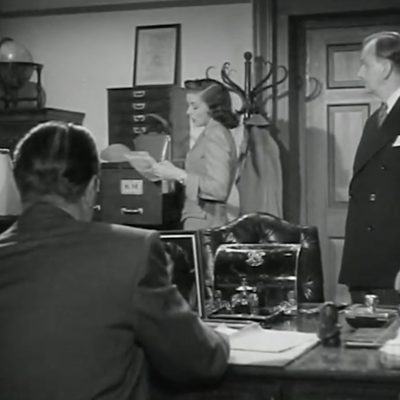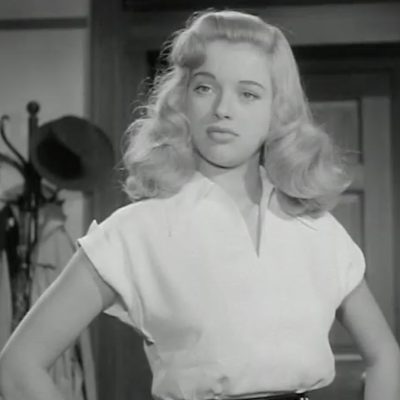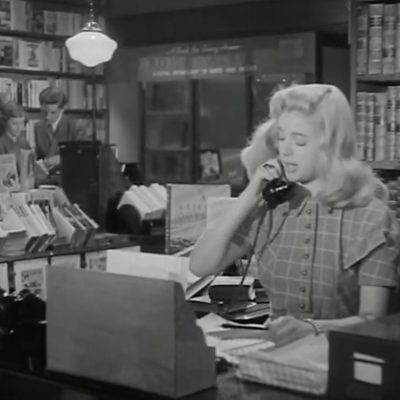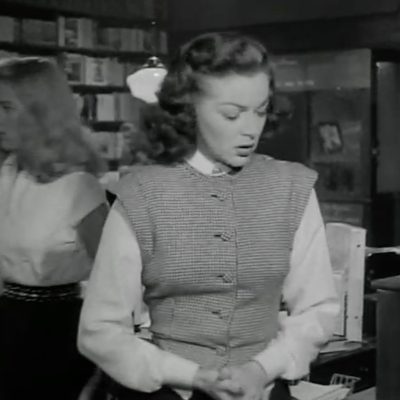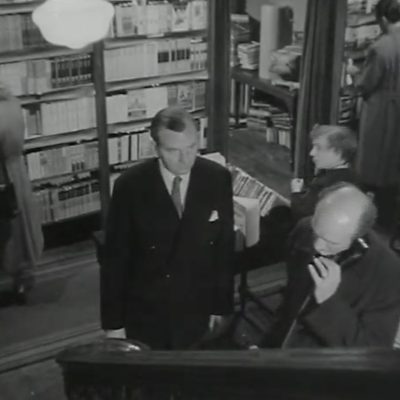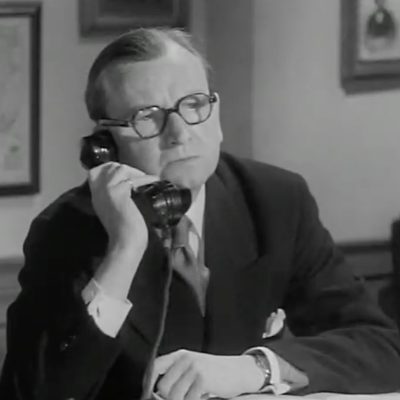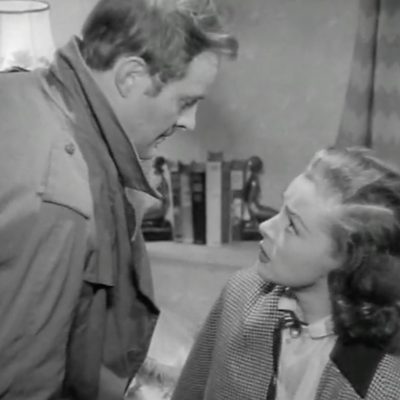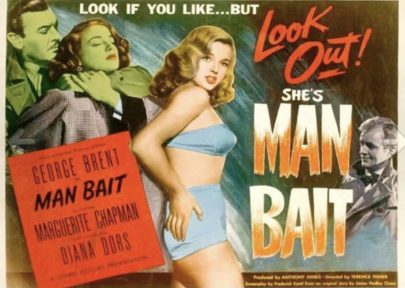Bookshop manager John Harman lands in trouble when, while working late at night with one of the shop assistants, Ruby, her blouse is accidentally torn on a filing cabinet. Ruby is talked into making more of the incident by the caddish Jeff Hart and attempts to blackmail her boss. But things go terribly wrong when Ruby is killed by Hart, and John, now suspected of the murder, goes on the run…
Production Details
A Hammer production released by Exclusive Films (UK) and Lippert Films (USA)
From the play “Last Page” by James Hadley Chase
All characters in this photoplay are fictitious and bear no resemblance to any real person, living or dead
RCA Sound System
Royal Philarmonic Orchestra
Black & White 84 minutes
Filming dates: 9th July – 10th August 1951
UK Release: 19th May 1952
Filming:
Bray Studios, Down Place, Oakley Green, Berkshire – Studio
Queen Charlotte Street, Windsor, Berkshire – Bookshop
Charing Cross Road, Covent Garden, London – Clive Oliver gets off bus
General Post Office, High Street, Windsor, Berkshire – Jeffrey posts the blackmail letter
Windsor & Eton Riverside Station, Datchet Road, Windsor, Berkshire – John tries to escape via rail, but spots police there
Claremont Road and Trinity Place, Windsor, Berkshire – Postman delivering letter
King Street, Maidenhead, Berkshire – John walking the streets
St. Saviours Church, The Grove, Ealing, London – John meets Stella at bombed-out church from WWII
St. James Piccadilly Church, 197 Piccadilly, London – Stella meets Clive to ask him for help
Park Street, Black Horse Yard, Windsor, Berkshire – Jeffreys flat where he takes Stella
Charing Cross Road, London – Clive Oliver gets off the bus
Stills from film
Click an image for enlarged slideshow
Cast & Crew
Cast – Complete, awaiting verification
Red = Uncredited
Original Poster
Click to enlarge
Footnotes
Terance Fisher, Hammer’s most highly regarded Director, makes his debut with the Company here.
With the support of Lippert, Hammer now began to bring over established Hollywood stars to boost the appeal of their films in the US. George Brent, who was in fact a British subject, was the first of these. He had appeared in the classic musical 42nd Street (1933), as well as in The Rich Are Always With Us (1932) and Dark Victory (1939). His co-star in the latter two was Bette Davis, who herself would later work for Hammer in The Nanny (1965) and The Anniversary (1968).
